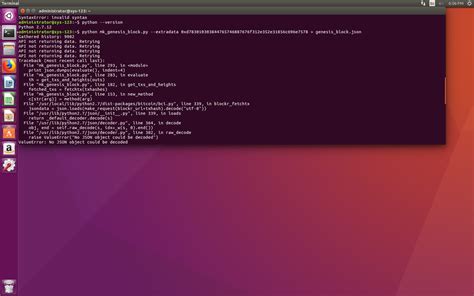Generation of Public Key ED25519 from a private key using libsodium
As more crypto currency and blockchain projects begin to accept Advanced Cryptographic Technology, Understanding How To Safely Generate Keys is becoming more and more important. In this article, we will explore the public key generation of the ed25519 from the private key of ed25519 in JavaScript using the popular Library, libsodium.
What is ed25519?
ED25519 is a digital signature scheme that uses the cryptography of the Elliptical Cryptography (ECC) to provide safe encryption of public key and digital signatures. It is designed to be faster than RSA for most cases of use, with better performance implementation based on hardware. ED25519 Keys are usually generated using a pair of private and public keys, known as ECDSA (algorithm of digital signatures of the elliptical curve).
why do we need this guide?
Although many crypto currencies and blockchain projects may have already used Ed25519 Technology, Understanding How To Safely Generate Keys From Private Keys is Crucial to Securing the Safety and Integrity of Your CryptoRaphic Operations.
In this article, we will show how to use libsodium, a light library for cryptographic operations, to generate a public key to the ed25519 from the key to a private ed25519. We will also cover the generation of a new public key using a private key (known as “re -punching”) and generating a new private key using a public key.
Assembly

Before we start, make sure you have a libsodium installed on your system. You can install it using NPM:
`Bash
NPM Install Libsodium
`
Generation of Public Key ED25519 from a private key using libsodium
Here's an example of a code clip showing how to generate a public key to ed25519 with a private key to ed25519 using libsodium:
JavaScript
Const sodium = demand ('libsodium');
// insert private and public keys to ed25519
sodium.loadKeyfile (Privatekey, (ERR, Privatekey) => {
If (ERR) {
console.error (ERR);
Return;
Iche
// Perform a Private Key As A String
Const privateekeystr = satrium.exportprivatkey (Privatekey, 'Hex');
// generate the public key to ed25519 from a private key
Const publickey = sodium.publicyfrompromte (Privatekeystr);
// Print A Generated Public Key
Console.log (ed25519 Public Key: $ {sodium.exportpublisckey (Publiciscey)});
});
In this clip of the code:
- We multiply private and public keys with ed25519 in memory usingsatrium.loadKeyfile
.
- We export a private key as a string in a hexadecimal format, which can be easily stored or transferred.
3
Generation of a private key from a public key using libsodium
Here's Another Example Of A Code Clip Showing How To Generate A New Private Key From The Existing ED25519 Public Key Using Libsodium:
JavaScript
Const sodium = demand ('libsodium');
// insert the public key to ed25519 in memory
sodium.loadKeyfile (publiciscey, (Err, publiciscey) => {
If (ERR) {
console.error (ERR);
Return;
Iche
// expel public key as a string in a hexadecimal format
Const PUBRICKETR = satrium.exportpublicyy (Publickey);
// generate a new private key from a public key
Const Privatekey = satrium.privateekeyfrubli (Kypoint: Publickeystr);
// Print A Generated Private Key
Console.Log (Ed25519 Private Key (New Key): $ {SATRIUM.EXPORTPRIVATKEY (Privatekey, ‘Hex’)});
});
In this clip of the code:
- We need a public key to ed25519 in memory usingsodium.Loadkeyfile ‘.
- We export a public key as a string in a hexadecimal format and print it on the console.
3
Leave a Reply